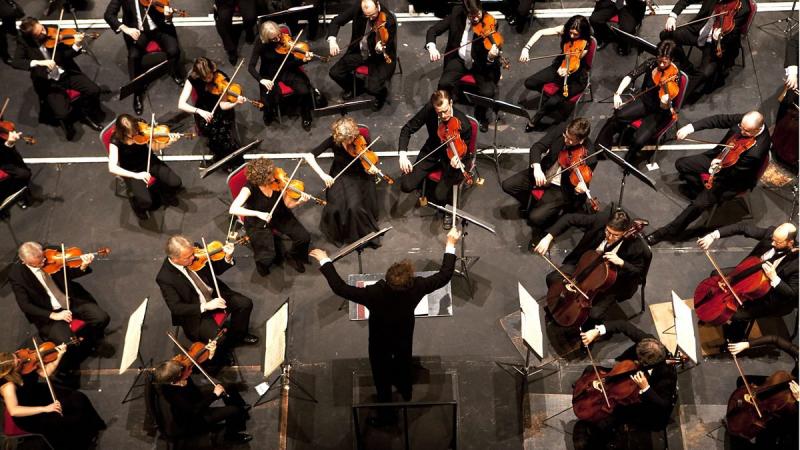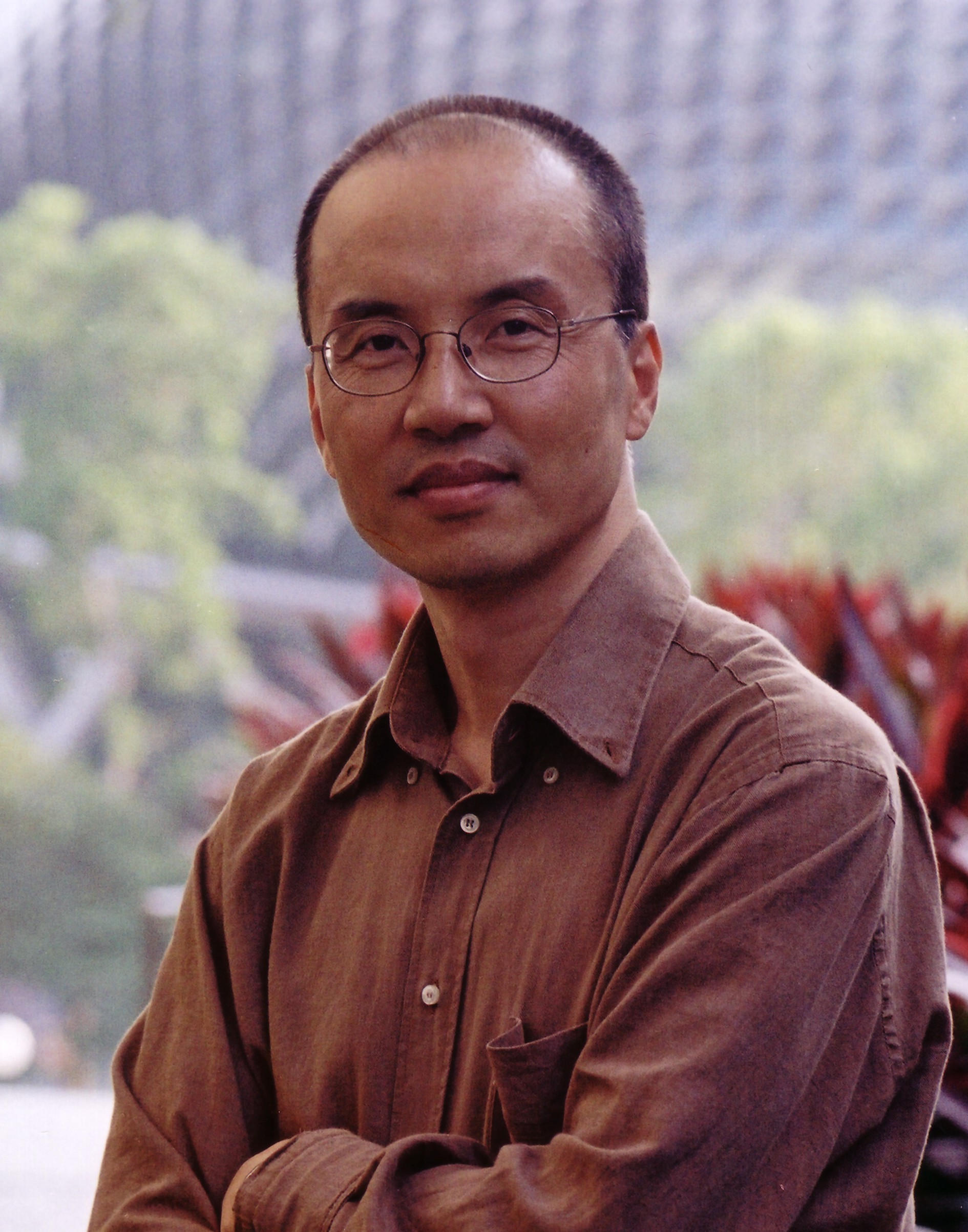BBC NOW, Alexandre Bloch, Hoddinott Hall, Cardiff review - tonal music in an avant-garde sense | reviews, news & interviews
BBC NOW, Alexandre Bloch, Hoddinott Hall, Cardiff review - tonal music in an avant-garde sense
BBC NOW, Alexandre Bloch, Hoddinott Hall, Cardiff review - tonal music in an avant-garde sense
Brilliant concert justifies the Vale of Glamorgan Festival's commitment to living composers

This is the 50th Vale of Glamorgan Festival, and as its founder and director, John Metcalf, reminded us in a brief post-interval speech, he has been at all of them.
It sounds like a recipe for the ultimate niche event. But, in fact, it has steadily grown into one of the most impressive, sharply profiled new music festivals anywhere in Europe, an event defined as much by the kind of avant-garde modernism you will emphatically not hear at it, as by the kind you will.
How the music relates to the poem, line-by-line, is a mystery. But it’s irresistibly affecting
It would be easy to write the Metcalf vision off as an endless diet of Arvo Pärt and John Taverner, composers he certainly has cultivated in the past. But yesterday’s opening concert of the 2018 festival by the BBC National Orchestra of Wales made nonsense of such over-simplifications. From start to finish it was an evening of vibrant contrasts, explosive movement challenged by lyrical reflection: above all, an evening of tonal discourse reinstated, not in the reactionary sense of that disappointed Sixties generation of anti-modernists who still to this day bemoan William Glock’s influence on BBC music, but in the enriched sense of a tonality that has absorbed and tamed post-war modernism and reinterpreted it as a continuation of the history it once rejected.
Qigang Chen’s L’éloignement, which opened the concert, might well, for instance, slip into the repertoire of any string orchestra that could cope with Tippett’s double concerto or Britten’s Bridge variations. Yet its vivid contrasts and extreme refinements of texture go well beyond those works into a region inhabited by memories of Ligeti and Lutoslawski, without ever for a moment abandoning the overriding sense of key. Chen (pictured below) was born in Shanghai but studied with Messaien in Paris; and his music beautifully combines an oriental inwardness (captured in the Chinese folksong that provides its lyrical moments) with an almost aggressive dynamism – closer perhaps to Ravel: and Ravel-like in its lucid, finely “heard” orchestration.
 A more obviously substantial achievement is Chen’s Jiang Tcheng Tse (For the Sake of Art), a co-commission by the festival and here given its European premiere. This is an ambitious choral-orchestral setting of a profoundly moving poem by the 11th century poet Su Shi, in which the poet mourns his long-dead wife, feeling her constant presence but unable “to converse with you and whisper my longing”. Writing for a choir he assumes, dangerously, to be as professionally competent as the average symphony orchestra, Chen transfers to it the richly textured close harmonies of his instrumental style, in search of a certain thickness or concentration of emotion, leavened with a kind of bravura mouth-music for solo soprano (the extraordinary Meng Meng), using a technique apparently borrowed from Chinese opera.
A more obviously substantial achievement is Chen’s Jiang Tcheng Tse (For the Sake of Art), a co-commission by the festival and here given its European premiere. This is an ambitious choral-orchestral setting of a profoundly moving poem by the 11th century poet Su Shi, in which the poet mourns his long-dead wife, feeling her constant presence but unable “to converse with you and whisper my longing”. Writing for a choir he assumes, dangerously, to be as professionally competent as the average symphony orchestra, Chen transfers to it the richly textured close harmonies of his instrumental style, in search of a certain thickness or concentration of emotion, leavened with a kind of bravura mouth-music for solo soprano (the extraordinary Meng Meng), using a technique apparently borrowed from Chinese opera.
Whether or not the singing, by the BBC National Chorus of Wales, was accurate I can’t say, but the total effect was exceptionally powerful, not least because Chen has a strong sense of large-scale form and a mastery of the art of transition. In both these works the interleaving of slow and quick music and the management of climax are handled with immense skill, while the dense textures never lose harmonic direction. How the music relates to the poem, line-by-line, is a mystery. But it’s irresistibly affecting as a whole.
The French conductor Alexandre Bloch seemed completely on top of its difficulties, and he also directed spectacular performances of a half-hour concerto for orchestra called Psalmos by his compatriot Thierry Escaich, and – more discreetly – Bent Sørensen’s Trumpet Concerto, a piece that assigns most of its considerable brilliance to the soloist. The orchestra’s principal trumpet, Philippe Schartz, made light of it, while the orchestra acted like an appreciative audience, rubbing their hands, tapping their instruments, and occasionally humming their approval. Escaich expects a lot more of the rank and file, and got it. Psalmos is a noisy, sometimes overwritten fantasy on a series of Lutheran chorales, but is never less than exhilarating. The select audience did their bit and cheered it to the rafters.
rating
Share this article
The future of Arts Journalism
You can stop theartsdesk.com closing!
We urgently need financing to survive. Our fundraising drive has thus far raised £49,000 but we need to reach £100,000 or we will be forced to close. Please contribute here: https://gofund.me/c3f6033d
And if you can forward this information to anyone who might assist, we’d be grateful.

Subscribe to theartsdesk.com
Thank you for continuing to read our work on theartsdesk.com. For unlimited access to every article in its entirety, including our archive of more than 15,000 pieces, we're asking for £5 per month or £40 per year. We feel it's a very good deal, and hope you do too.
To take a subscription now simply click here.
And if you're looking for that extra gift for a friend or family member, why not treat them to a theartsdesk.com gift subscription?
more Classical music
 Echo Vocal Ensemble, Latto, Union Chapel review - eclectic choral programme garlanded with dance
Beautiful singing at the heart of an imaginative and stylistically varied concert
Echo Vocal Ensemble, Latto, Union Chapel review - eclectic choral programme garlanded with dance
Beautiful singing at the heart of an imaginative and stylistically varied concert
 Scott, Irish Baroque Orchestra, Whelan, RIAM, Dublin review - towards a Mozart masterpiece
Characteristic joy and enlightenment from this team, but a valveless horn brings problems
Scott, Irish Baroque Orchestra, Whelan, RIAM, Dublin review - towards a Mozart masterpiece
Characteristic joy and enlightenment from this team, but a valveless horn brings problems
 Classical CDs: Voice flutes, flugelhorns and froth
Baroque sonatas, English orchestral music and an emotionally-charged vocal recital
Classical CDs: Voice flutes, flugelhorns and froth
Baroque sonatas, English orchestral music and an emotionally-charged vocal recital
 Kanneh-Mason, Britten Sinfonia, Shave, Milton Court - a grin and a big beaming smile
A pair of striking contemporary pieces alongside two old favourites
Kanneh-Mason, Britten Sinfonia, Shave, Milton Court - a grin and a big beaming smile
A pair of striking contemporary pieces alongside two old favourites
 theartsdesk at the New Ross Piano Festival - Finghin Collins’ musical rainbow
From revelatory Bach played with astounding maturity by a 22 year old to four-hand jazz
theartsdesk at the New Ross Piano Festival - Finghin Collins’ musical rainbow
From revelatory Bach played with astounding maturity by a 22 year old to four-hand jazz
 First Person: Manchester Camerata's Head of Artistic Planning Clara Marshall Cawley on questioning the status quo
Five days of free events with all sorts of audiences around Manchester starts tomorrow
First Person: Manchester Camerata's Head of Artistic Planning Clara Marshall Cawley on questioning the status quo
Five days of free events with all sorts of audiences around Manchester starts tomorrow
 Goldscheider, Brother Tree Sound, Kings Place review - music of hope from a young composer
Unusual combination of horn, strings and electronics makes for some intriguing listening
Goldscheider, Brother Tree Sound, Kings Place review - music of hope from a young composer
Unusual combination of horn, strings and electronics makes for some intriguing listening
 theartsdesk Q&A: composer Donghoon Shin on his new concerto for pianist Seong-Jin Cho
Classical music makes its debut at London's K-Music Festival
theartsdesk Q&A: composer Donghoon Shin on his new concerto for pianist Seong-Jin Cho
Classical music makes its debut at London's K-Music Festival
 Helleur-Simcock, Hallé, Wong, Bridgewater Hall, Manchester review - moving lyricism in Elgar’s concerto
Season opener brings lyrical beauty, crisp confidence and a proper Romantic wallow
Helleur-Simcock, Hallé, Wong, Bridgewater Hall, Manchester review - moving lyricism in Elgar’s concerto
Season opener brings lyrical beauty, crisp confidence and a proper Romantic wallow
 Kohout, Spence, Braun, Manchester Camerata, Huth, RNCM, Manchester review - joy, insight, imagination and unanimity
Celebration of the past with stars of the future at the Royal Northern College
Kohout, Spence, Braun, Manchester Camerata, Huth, RNCM, Manchester review - joy, insight, imagination and unanimity
Celebration of the past with stars of the future at the Royal Northern College

Add comment